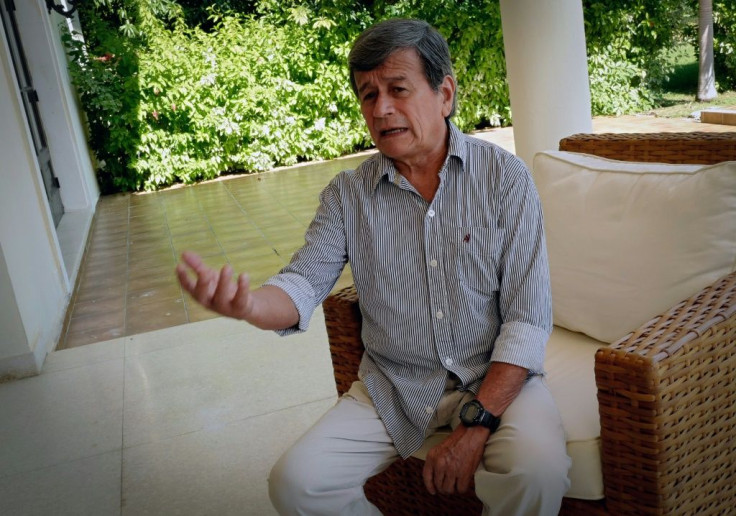ELN Accuses Supporters Of Colombian Ex-president Of Massacres

Faced with an escalation of murders in the territories where it operates, Colombia's Marxist National Liberation Army (ELN) rebels blame the violence on right-wing paramilitaries reacting to the house arrest of former president Alvaro Uribe.
Pablo Beltran, who heads the Cuban-based negotiating delegation representing the ELN, believes that Uribe's arrest could provide a springboard for progress in peace talks between the government and Colombia's last remaining left-wing guerrilla group.
Those talks have been on hold since Uribe's protege Ivan Duque became president in 2018.
"Duque is governing in Uribe's name... If Uribe is strengthened, the peace process will die. If Uribe is weakened, there are possibilities for the peace process," Beltran, a guerrilla commander, told AFP in an interview in Havana on Wednesday.
Q: To what do you attribute the escalation of violence in areas where the ELN operates?
A: "In Colombia, a special situation opened up on August 4, when they decided to call for a trial and place former president Uribe, a very powerful man, under house arrest. Several of his followers said they were going to burn down the country. After that, massacres increased."
Q: Is this a reaction to the arrest of Uribe?
A: "There is a situation of ungovernability after Uribe's arrest. There is a reaction from his followers."
That's the context, because the main agents of all that violence are the narco-paramilitary groups, in the Pacific area, the Caribbean and the border with Venezuela.
"They are very militarized groups, and advisors from the United States have arrived in those areas. How do you explain that where they are more militarized, where the most specialized brigades and the most bloodthirsty narco-paramilitaries are, these things happen? If you militarize a territory, you have to answer for it."

Q: The ELN are accused of being involved in the recent massacre of young people in Narino?
A: "That is not true. We have several fronts in this area... That's on the border with Ecuador, a coca-growing area where the peasants have no other option. People have been asked (about those responsible) and they say that it is a narco-paramilitary group called "Los Contadores.
"They were in the Pacific area and have gone up into the mountains, where this massacre took place. Our force has fought with them because they want to leave the Pacific coast and go up into the mountains.
But these are things from the previous month. And their retaliation is to attack the organized communities because they attribute ELN influence to them."
Q: How does the ELN plan to contribute to reducing the conflict?
A: "The UN Security Council demanded a ceasefire in June. Our leadership said it was prepared to do so and proposed a bilateral ceasefire. But the government has not responded. The government is not responding."
Q: What scenario do you see for Colombia?
A: "There have been 33 massacres, this happens and the government is not moved. These massacres of young people have been a wake up call for people to say enough is enough."
Q: Is the ELN's position now one of attack, or defense, or both?
A: "It's defense. Many communities that are being persecuted and massacred are telling us, come and help us organize our legitimate defense. More than attack, it's defense of life and territory."
© Copyright AFP {{Year}}. All rights reserved.





















